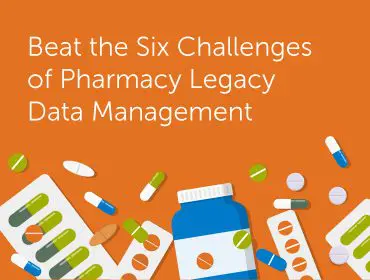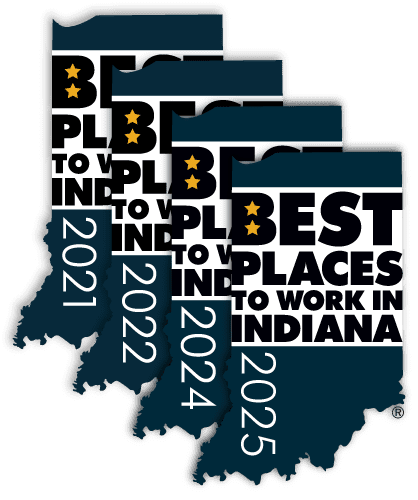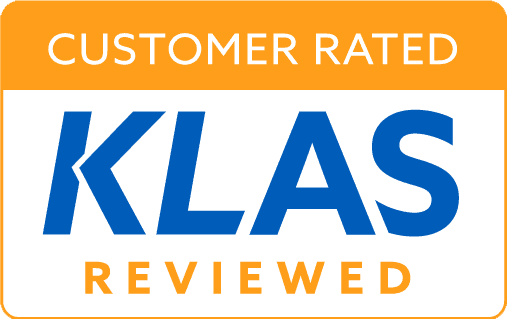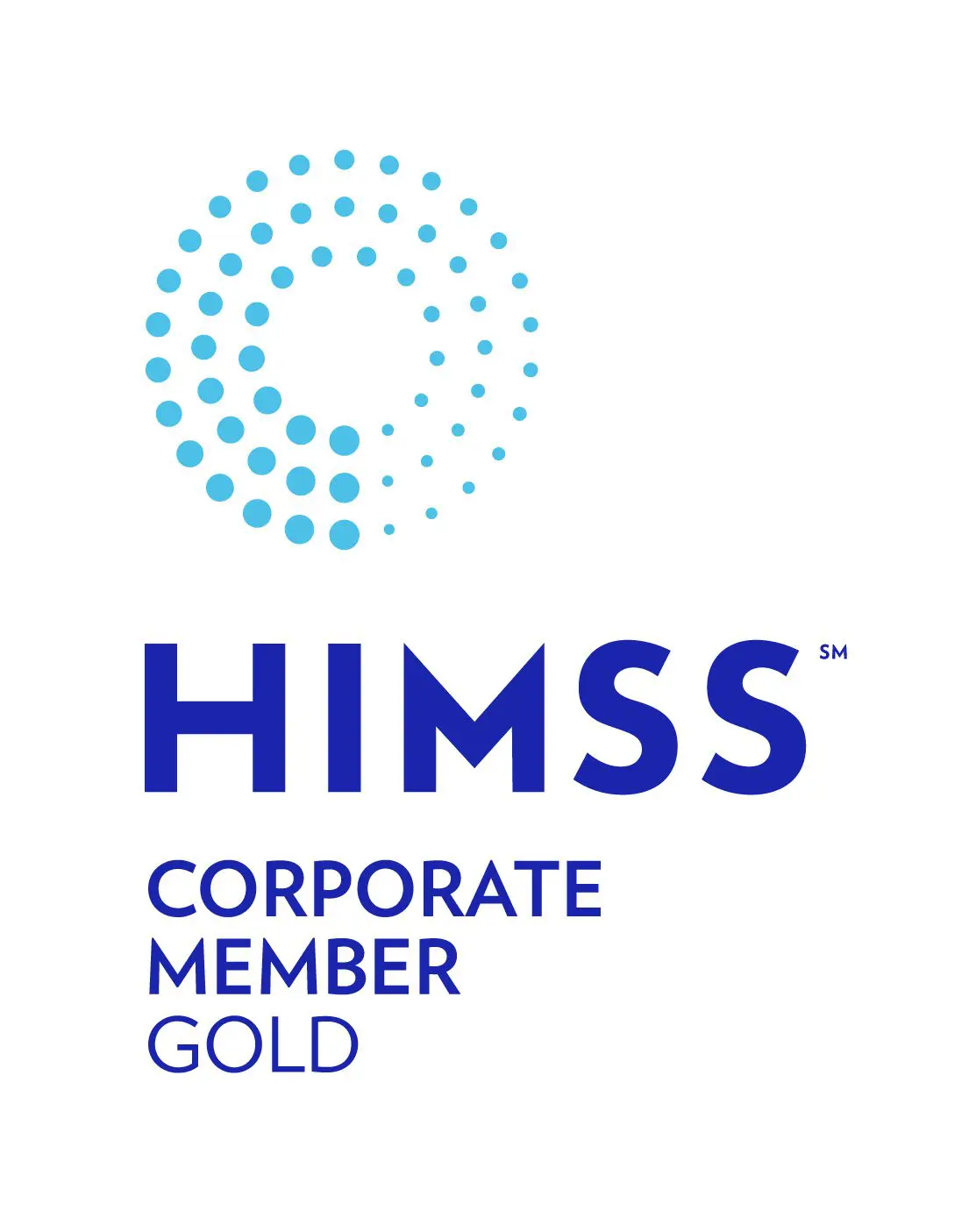
The U.S. pharmacy market is growing. Net spending in the past five years increased $102 billion with a growth rate of 5.5% CAGR. Continued growth of 4-7 percent is expected through 2028. One significant growth factor is the 50-55 new medicines launched each year especially for oncology, diabetes and neurology.
For many patients, the new medicines can’t get here fast enough. New prescriptions in the United States ranked as the highest utilized area of the five areas of health services according to an IQVIA Institute Report.
Pharmacy data is also growing in volume and in velocity, as the data must be accessible and interoperable to meet ever-expanding regulations. Legacy data management for pharmacy records can be complex, especially because of the different standard data exchange standards that exist between pharmacy and medical providers and health plans.
Keeping track of pharmacy data is a big and important job.
The average American adult takes four prescription medications. The data generated by prescriptions quickly adds up and must be accurate, retained and accessible. Pharmacy information typically includes details of the prescribed medications, dosages, schedules and notes. The factors that impact the data generated in the pharmaceutical area include:
- E-prescribing is becoming more popular, and the additional data that is stored electronically adds volume to the patient record.
- Patient portals where patients now directly access their prescription data which must be up to date and accurate.
- Insurance companies and pharmacies collect data on spending and frequently prescribed medications.
Data management for pharmacy records is vital for compliance, efficiency and accessibility.
There are efforts underway to support increased pharmacy interoperability and better integration with HL7 FHIR specifications and Application Programming Interfaces (APIs) that support data exchange. A PeCP (Pharmacist eCare Plan) content standard, jointly developed by NCPDP and HL7 allows pharmacists to document and share clinical care information with other healthcare providers and payers. This includes sharing patient goals, health concerns, active medication list, drug therapy problems, lab results, vitals and payer information.
Regulatory compliance for pharmacy records includes abiding by the 21st Century Cures Act which has several requirements regarding interoperability and patient access. Plus, federal regulations (HIPAA, etc.) mandate that electronic prescriptions and controlled substance records must be accessible for two years; Medicare requires providers to maintain prescription records for seven years, and states may have their own specific requirements.
Beyond record retention and accessibility, data security is governed by the HIPAA Security Rule. There are administrative, physical and technical requirements that ensure the data is kept secure, accurate and ready to share with authorized users.
Six challenges facing pharmacy records legacy data management:
- Data silos. Pharmacy data can be housed in isolated systems which can impact accurate and timely decision making and patient care.
- Data security. Data breaches and unauthorized access can create problems for patients and providers.
- Data quality. Inaccurate or incomplete patient data creates higher risks and can create significant issues if there are clerical errors and/or outdated information.
- Volume and variety of data. Pharmacies collect a lot of patient and transaction data in various formats from multiple sources (patient records, insurance claims, etc.) that must be integrated into a usable format.
- There are unique challenges for pharmacy records that need to communicate with different systems and databases. A resource guide from Pharmacy Health Information Technology Collaborative provides key information about this important topic.
- Timely access and analysis. It can be challenging to analyze pharmacy data quickly and accurately to help providers gather and assess all the relevant information needed for optimal patient care.
Pharmacy records need a long-term data management strategy.
Several EHRs have specialized modules to manage pharmacy records, including Epic, Oracle Cerner, Allscripts, McKesson and others. As these EHRs and other smaller specialty applications are upgraded or replaced, there is an immediate need for a legacy data management strategy.
To begin, create a legacy system inventory, develop or revise your legacy data management strategy and look for a vendor partner to support the legacy data management with an active archive.
Four benefits of a strong pharmacy legacy data management program:
There are four primary benefits of streamlining the legacy data systems and application footprint within the provider organization, including:
- Improved efficiency. Archiving medical records, including pharmacy records, consolidates data silos (sometimes hundreds of applications) into a vendor neutral archive that can be accessed via a Single Sign-On from the active EHR. Improved workflows and less clinician frustration is a plus.
- Cost reduction. Cost savings driving legacy data management decisions is a leading priority for 55 percent of the CIOs we surveyed. Cost savings by customers moving to an active archive for legacy data typically realize a return within 18-24 months. In contrast, maintenance alone on legacy applications can lead to a 15 percent annual budget increase.
- Better decision making. Archiving is a best practice that also delivers clinicians a supportive bedside tool linked to the comprehensive medical record. Further, Legacy Record Indicator is a new archive feature that empowers healthcare providers with immediate knowledge that a historical patient record is present.
- Data accessibility and security. Archived data within HealthData Archiver® is accessible and enabled with FHIR enabled Harmony Healthcare IT’s ETL Environment, HealthData Platform™ and Workstations have earned certified status from HITRUST for information security. This is the worldwide standard for cybersecurity preparedness.
Access to comprehensive patient records supports pharmacists, healthcare providers and patients.
Harmony Healthcare IT provides comprehensive data management services to migrate and archive records across the entire healthcare system of health systems, pharmacies, clinics, labs, blood banks, home health care, long-term care, etc.
Our HealthData Platform™ solution is a cloud-hosted enterprise-wide infrastructure designed for the secure management of protected health information. This scalable solution has customizable modules that help organizations preserve vital information, strengthen healthcare delivery and streamline application portfolios.
Do you have legacy data stuck in data silos across your organization?
We can help. Reach out.






